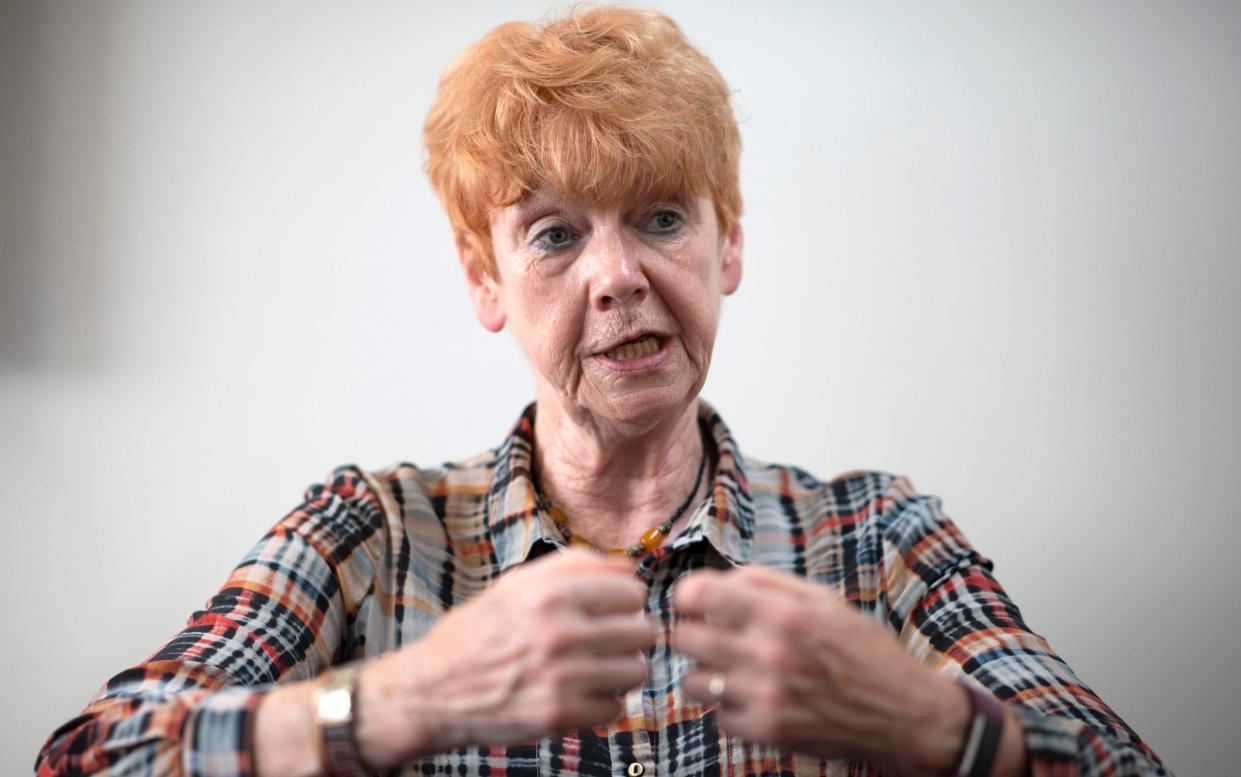Face masks have led to increase in stalking, says victims’ commissioner

Face masks have fuelled an increase in stalking, the victims' commissioner warned as she urged the police to take the crime more seriously.
The number of stalking and harassment offences rose by 28 per cent to 632,022 in the year to March, according to the Office for National Statistics (ONS).
This was confirmed by separate research for the Suzy Lamplugh Trust, which showed that half of stalking victims had experienced an increase in the behaviour either online or offline during Covid lockdowns.
Dame Vera Baird, the victims' commissioner, said the extra anonymity provided by face coverings had been used by assailants to perpetrate in-person stalking, "further heightening victims' fear and distress".
This included increased spying, reported by 18 per cent of the 111 victims surveyed by the Trust, visiting their homes or work, which was reported by 13 per cent, and loitering, also reported by 13 per cent.
Masks have made it harder for detectives to positively identify and prosecute suspects using CCTV footage. Lockdown restrictions have also fuelled an increase in "socially distanced" tactics to stalk victims, according to the research.
"Stalkers' use of sending letters and gifts as a 'socially distanced' behaviour also highlights that the obsession and fixation which characterise stalking do not disappear under lockdown restrictions," Dame Vera said.
"Worryingly, for many of the 111 victims who participated in the survey, stalking behaviours have increased since the start of the pandemic, with further detrimental impacts for their mental health and well-being.
"Indeed, it is possible that lockdown created further opportunities for perpetrators to carry out stalking. Yet despite these concerning findings, many stalking victims continue to receive a woefully poor response from the criminal justice system while also struggling to access vital health support."
Nearly six in ten – 59 per cent – of stalking victims who reported their experience to police said the way in which it had been dealt with was unsatisfactory. A quarter claimed police failed to recognise the perpetrator's pattern of behaviour as a stalking offence, while 13 per cent felt their complaint was not taken seriously or acted upon.
Sixty-three per cent said their experience in the courts had been unsatisfactory, citing the lack of protection orders being put in place, delays to hearings or courts not understanding the trauma of stalking.
"In the context of unacceptably low charging and conviction rates for stalking, it is vital that the criminal justice response to stalking victims is urgently improved," said Dame Vera. "Thirty-five years on from the disappearance of Suzy Lamplugh, we need to see a shift in the way that our country deals with the crime of stalking as a whole."
She proposed greater use of risk assessments when a victim reported to the police and more effective use of stalking protection orders, which police can seek to restrict access, contact and the movements of a suspect stalker. Breaches carry a maximum sentence of a year in jail.
The commissioner also called for the Government's violence against women and girls strategy to investigate ways of improving the "shockingly low" conviction rates for stalking.
"Stalking is a pervasive, deeply unsettling and dangerous crime, which has increased significantly over lockdown. We must ensure that victims are able to access the protection, support and justice that they need," she said.
Half of those surveyed said their mental health had worsened since the first lockdown, which could be linked in some cases to the increased intensity of stalking during the pandemic.

 Yahoo News
Yahoo News 